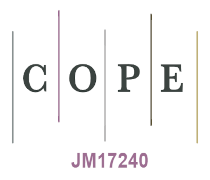Social support, life satisfaction and feeling of loneliness among alcohol dependent males
DOI:
https://doi.org/10.18778/1427-969X.11.07Keywords:
alcohol dependence, loneliness, social support, life satisfactionAbstract
The aim of the study was the answer to the a question about social and psychological correlates of feeling of loneliness among males beginning of therapy. The determinants of the feeling of loneliness were identified too. Social and demographical data, social support and life satisfaction were included to independent variables. Research was conducted on 60 alcohol dependent males which are at the beginning of the therapy. Recluse people which undertook therapy in past have the higher level of oneliness. Males with higher level of loneliness are less satisfied with many aspects of their lives and have weaker social support. The results indicated that four of examined variables became the feeling of loneliness predictors: emotional support, social integration, satisfaction with oneself and state of health.
References
Beck A. T., Wright F. D., Newman C. F., Liese B. S. (1993), Cognitive Therapy of Substance Abuse, The Guilford Press, New York
Google Scholar
DOI: https://doi.org/10.1037/e495912006-008
Brennan P. L., Moos R. H. (1990), Life stressors, social resources and late-life problem drinking, "Psychology and Aging", 5, 491–501
Google Scholar
DOI: https://doi.org/10.1037//0882-7974.5.4.491
Bronowski P. (2000), Wsparcie społeczne u członków wspólnoty Anonimowych Alkoholików, "Alkoholizm i Narkomania", 3, 337–346
Google Scholar
Brown S. (1990), Leczenie alkoholików. Rozwojowy model powrotu do zdrowia, PZWL, Warszawa
Google Scholar
Chodkiewicz J. (1999), Charakterystyka psychologiczna osób podejmujących leczenie odwykowe, "Mazowieckie Studia Humanistyczne", 2, 105–113
Google Scholar
Chodkiewicz J. (2006), Zadowolenie z życia. Polska adaptacja kwestionariusza FLZ, Łódź, materiały niepublikowane
Google Scholar
Cierpiałkowska L. (2006), Kierunki rozwoju współczesnej psychologii uzależnień (na przykładzie alkoholizmu), [w:] L. Cierpiałkowska (red.), Oblicza współczesnych uzależnień, UAM, Poznań, 17–43
Google Scholar
Fahrenberg J. (2000), Fragebogen zur Lebenszufriedenheit. Handanweisung, Hogrefe-Verlag, Gottingen
Google Scholar
Hornowska E. (2006), Uzależnienia a temperament. Wokół temperamentalnego czynnika ryzyka uzależnień, [w:] L. Cierpiałkowska (red.), Oblicza współczesnych uzależnień, UAM, Poznań, 43–73
Google Scholar
Jakubik A. (2000), Osobowość alienacyjna a schizofrenia paranoidalna, "Studia Psychologica", 1, 1, 69–80
Google Scholar
Jakubik A., Kowaluk B. (1997), Wsparcie społeczne a utrzymywanie abstynencji u mężczyzn uzależnionych od alkoholu, "Alkoholizm i Narkomania", 1, 89–103
Google Scholar
Jakubik A., Kraszewska E. (2002), Zespół alienacyjny u mężczyzn uzależnionych od alkoholu, "Alkoholizm i Narkomania", 1, 95–106
Google Scholar
Juczyński Z., Adamiak G. (2005), Zasoby osobiste i społeczne sprzyjające radzeniu sobie opiekunów z depresją członka rodziny, "Psychiatria Polska", 39, 1, 161–174
Google Scholar
Kapler L. (1999), Model rozwoju uzależnienia i powrotu do zdrowia, [w:] A. Dodziuk, L. Kapler (red.), Nałogowy człowiek, Biblioteka Świata Problemów, Warszawa, 19–35
Google Scholar
Klein M., Scheller R. (1989), Differentialdiagnostische Aspekte des Rückfallgeschehens bei Alkohol und Medikamentenabhängigkeit, [w:] H. Watzl, R. Cohen (red.), Rückfall und Rückfallprophylaxe, Springer, Berlin, 111–125
Google Scholar
DOI: https://doi.org/10.1007/978-3-642-83805-7_8
Kmieciak-Baran K. (1995), Poczucie alienacji, Wydawnictwo Uniwersytetu Gdańskiego, Gdańsk
Google Scholar
Koivumaa-Honkanen H. T., Vinamaki H., Honkanen R., Tanskanen A., Antikainen R., Niskanen L., Jaaskelainen J., Lehtonen J. (1996), Correlates of life satisfaction among psychiatric patients, "Acta Psychiatrica Scandinavica", 94, 372–378
Google Scholar
DOI: https://doi.org/10.1111/j.1600-0447.1996.tb09875.x
Król-Fijewska M. (1993), Tam i stamtąd, IPZiT, Warszawa
Google Scholar
Lazarus R. S., Folkman S. (1987), Transactional theory and research on emotions and coping, "European Journal of Personality", 1, 141–169
Google Scholar
DOI: https://doi.org/10.1002/per.2410010304
Lindenmeyer J. (2005), Lieber schlau als blau, Beltz-Verlag, Weinheim
Google Scholar
Łuszczyńska A., Mazurkiewicz M., Kowalska M., Schwarzer R. (2006), Berlińskie Skale Wsparcia Społecznego (BSSS): Wyniki wstępnych badań nad adaptacją skal i ich właściwościami psychometrycznymi, "Studia Psychologiczne", 44, 3, 17–27
Google Scholar
Mellibruda J. (1998), Psychologiczne mechanizmy uzależnienia i koncepcja psychoterapii, "Przegląd Psychologiczny", 41, 3/4, 13–59
Google Scholar
Murphy S., Hoffman A. (1993), An empirical description of phases of maintenance following treatment for alcohol dependence, "Journal of Substance Abuse", 5, 131–143
Google Scholar
DOI: https://doi.org/10.1016/0899-3289(93)90057-I
Oleś P., Steuden S., Toczołowski J. (red.) (2002), Jak świata mniej widzę, TN KUL, Lublin
Google Scholar
Peele S. (1987), Doświadczenie uzależnienia, "Nowiny Psychologiczne", 3, 61–87
Google Scholar
Rembowski J. (1992), Samotność, Wydawnictwo Uniwersytetu Gdańskiego, Gdańsk
Google Scholar
Rokach A. (1988), The Experience of Loneliness: A Tri/level Model, "Journal of Psychology", 122, 531–544
Google Scholar
DOI: https://doi.org/10.1080/00223980.1988.9915528
Sęk H. (2001), O wieloznacznych funkcjach wsparcia społecznego, [w:] Psychologia kliniczna i psychologia zdrowia, L. Cierpiałkowska, H. Sęk (red.), Humaniora, Poznań, 13–33
Google Scholar
Sheridan Ch. L., Radmacher S. A. (1998), Psychologia zdrowia, IPZ, Warszawa
Google Scholar
Wegschneider S. (2000), Nowa szansa. Nadzieja dla rodziny alkoholowej, IPZ, Warszawa
Google Scholar
Wilska A. (2006), Wsparcie społeczne i stan zdrowia a jakość życia u Dorosłych Dzieci Alkoholików, Łódź, niepublikowana praca magisterska
Google Scholar
Windle M., Davies P. T. (2003), Teoria rozwojowa i związane z nią badania, [w:] K. E. Leonard, H. T. Blane (red.), Picie i alkoholizm w świetle teorii psychologicznych, PARPA, Warszawa, 209–255
Google Scholar
Wnuk M. (2006), Zaangażowanie w ruch samopomocy a poczucie jakości życia osób uzależnionych od alkoholu. Mediacyjna rola poczucia sensu życia, "Alkoholizm i Narkomania", 19, 4, 357–368
Google Scholar
Downloads
Published
How to Cite
Issue
Section
License

This work is licensed under a Creative Commons Attribution-NonCommercial-NoDerivatives 4.0 International License.








